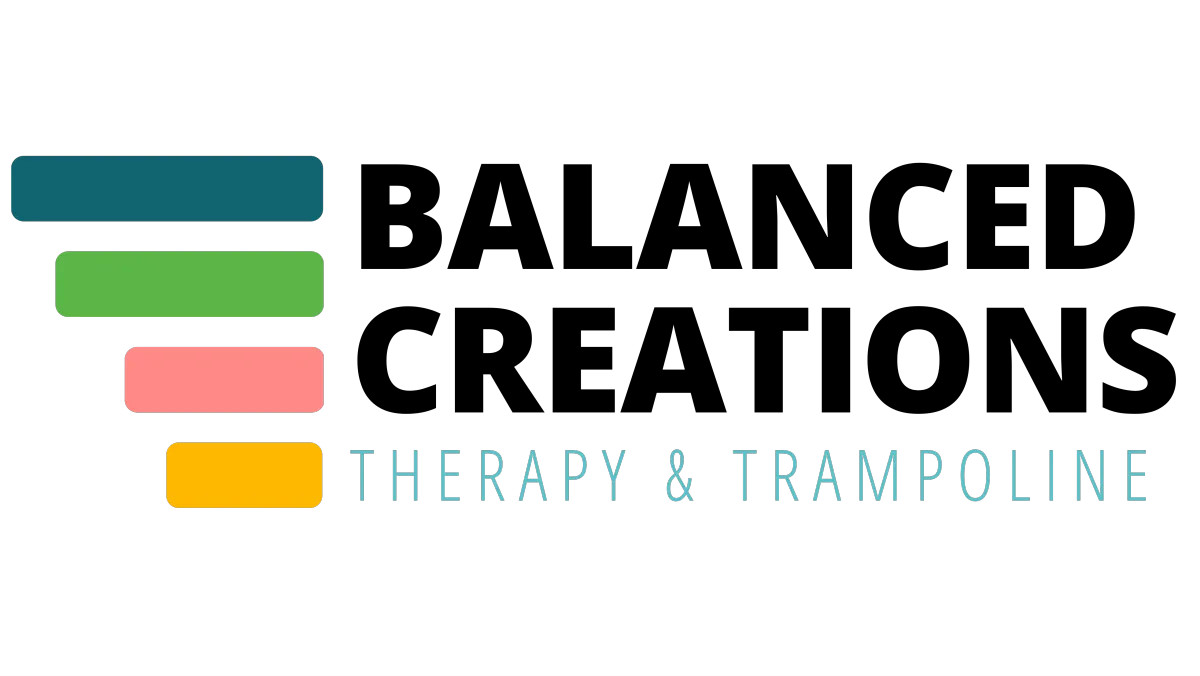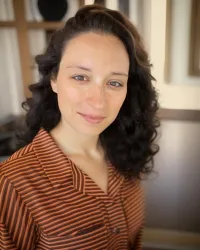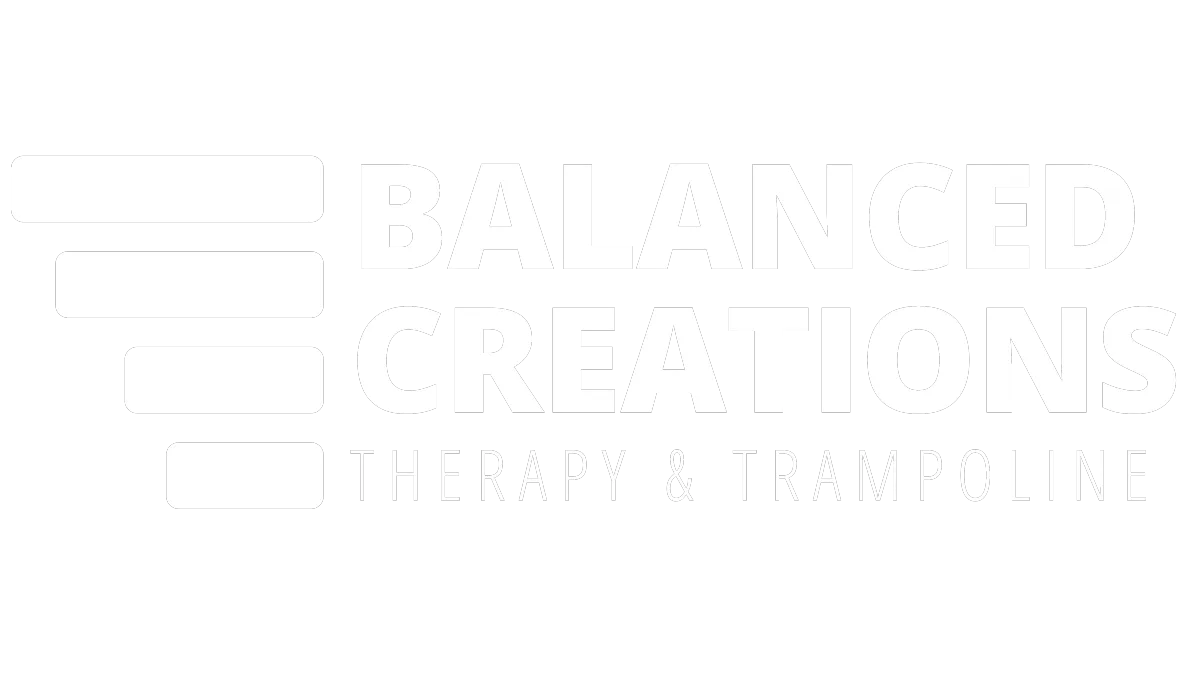Terms & Conditions
Resources for Parents and Clinicians

Why NASA Studies Trampolines: The Surprising Connection to Pediatric Physical Therapy and Developmental Movement
How NASA’s Trampoline Research Impacts Pediatric Physical Therapy & Rehabilitation
Introduction:
Trampolines are commonly seen as a source of backyard fun, but their potential benefits extend far beyond just entertainment. In the 1980s, NASA conducted a fascinating study on trampoline exercise that has since proven to have significant implications for pediatric physical therapy and developmental movement education. At Balanced Creations Therapy & Trampoline, we incorporate the benefits of therapeutic trampolining into our programs, helping children and individuals of all abilities achieve optimal wellness.

The Surprising NASA Trampoline Study:
In the 1980s, NASA conducted a study titled "Body acceleration distribution and O2 uptake in humans during running and jumping," exploring the biomechanical effects of trampoline exercise on the body. While the study may seem unconventional, its findings have valuable applications for rehabilitation therapy. The research delved into the impact of trampoline jumping versus running on human biomechanics, oxygen uptake, and heart rate.
The study involved eight male participants performing treadmill running and trampoline jumping at varying intensities. The researchers measured acceleration at different points on the body, including the ankle, back, and forehead. The results were fascinating:
Trampoline jumping induced greater biomechanical stress compared to treadmill running, making it an effective tool for rehabilitation programs focusing on improving strength, endurance, and cardiovascular fitness.
Acceleration forces were more evenly distributed during trampoline exercise, reducing strain on specific joints, which could help prevent injury.
The study also found that the frequency of acceleration during trampoline jumping was more consistent, providing smoother, more controlled movements compared to running.
These findings highlight why trampoline exercise may be a game-changer in pediatric physical therapy and rehabilitation.

5 Key Takeaways for Pediatric Rehabilitation Therapists Using Trampolines
Trampolines Induce Higher Biomechanical Stress:
NASA's research found that trampoline jumping imposes greater biomechanical stress on the body compared to running. This can be incredibly beneficial in helping kids improve musculoskeletal strength and cardiovascular fitness during therapy.Impact Forces are More Evenly Distributed on Trampolines:
Trampoline jumping transmits impact forces more evenly across the body, reducing the strain on specific joints. This makes it an excellent option for children undergoing rehabilitation for joint or muscle-related issues.Trampoline Offers Smoother & More Controlled Movements:
The frequency components of trampoline jumping were found to be more uniform compared to running. This means that movement patterns during trampoline exercise are smoother and more controlled, making it easier to integrate into therapy programs for children who are still developing motor coordination.A Unique Form of Stimulus for Therapy:
Trampoline exercise can provide a unique cardiovascular and muscular stimulus for children undergoing rehabilitation therapy. This is especially useful for children who are recovering from immobility due to illness or injury.Further Research Is Needed:
Although the NASA study provides valuable insights, it also indicates the need for further research to fully understand the long-term benefits and risks of trampoline therapy for specific rehabilitation protocols.


How NASA's Trampoline Research Can Enhance Pediatric Therapy:
At Balanced Creations Therapy & Trampoline, we take the insights from NASA's research and apply them to create pediatric physical therapy programs that are engaging, fun, and highly effective. Trampoline therapy helps children develop strength, improve coordination, and regain mobility in a controlled environment. The added benefit of developmental movement education makes trampoline exercises perfect for building lifelong physical and mental wellness.
Through our personalized trampoline programs, children learn essential motor skills, balance, and muscle coordination. We’ve seen firsthand how trampolining can promote confidence and empowerment in children, enabling them to take control of their physical health.

Conclusion:
NASA’s study on trampoline exercise opened up exciting possibilities for rehabilitation therapy, and at Balanced Creations Therapy & Trampoline, we’re proud to incorporate these findings into our therapeutic programs. By harnessing the biomechanical benefits of trampolining, we help kids achieve optimal wellness while having fun. Whether it's for building strength, improving mobility, or enhancing overall health, trampoline therapy offers a fresh and effective approach to pediatric physical therapy.
Further Reading:
For those interested in the details of the original NASA study, the article can be accessed here:
Bhattacharya, A., McCutcheon, E. P., Shvartz, E., & Greenleaf, J. E. (1980). Body acceleration distribution and O2 uptake in humans during running and jumping. Journal of Applied Physiology: Respiratory, Environmental and Exercise Physiology, 49(5), 881-887. Read the full article here.
Subscribe for Updates on Therapeutic Trampolining:
Want to learn more about how trampolining can benefit pediatric physical therapy and developmental movement education? Be sure to subscribe to our blog for future updates on therapeutic trampoline research and innovative therapy techniques. You can also follow us on Instagram @BalancedCreationsTherapy for more tips, updates, and behind-the-scenes content.
Ready to help your child thrive? Contact us today to schedule a consultation for pediatric physical therapy in Fort Worth, Texas.
Last Updated: 03/23/2024
Welcome to Balanced Creations Physical Therapy, PLLC, doing business as Balanced Creations Therapy & Trampoline. We are committed to safeguarding your privacy and ensuring your satisfaction with our website and services ("Products"). This policy applies to our website [https://www.balancedcreationspt.com/], mobile applications, and desktop clients, and it applies globally.
This policy outlines how we handle your information and the collection and use of Personal Data provided during your interactions with us, both online and offline. "Personal Data" refers to any information that can identify an individual, including but not limited to name, email address, postal address, credit card number, and other personally identifiable information.
If you reside in the European Union ("EU"), United Kingdom, Lichtenstein, Norway, Iceland, or Switzerland, you may have additional rights regarding your Personal Data, as outlined below.
Balanced Creations Physical Therapy, PLLC will be the controller of your Personal Data provided, collected, and/or processed according to this Privacy Policy, unless otherwise stated. If you have any questions about this, please contact us using the information provided in the "Contact Us" section below.
This policy may be updated periodically due to operational practices or regulatory changes. We recommend reviewing our Privacy Policy whenever you visit our website.
Collection of Personal Data
We collect various categories of Personal Data when you interact with our Products, including:
- Name
- Email address
- Phone number
- Credit/debit card information
- IP addresses and other passive data (see "Passive Collection" section)
- Device identifiers (see "Mobile Application" section)
We collect and process your Personal Data for activities related to our Products, such as:
- Account Registration
- Using Product features
- Generating reports
- Service and support requests
- Transactions or orders
- Event Registration
- Surveys
- Newsletter subscriptions
- Customizing content and advertising
- Legal compliance
- Processing of Personal Data
We process Personal Data based on lawful grounds, including consent, contractual necessity, and legitimate interests, such as improving our Products and fulfilling your requests. We may use Personal Data to:
- Provide Products and support
- Communicate with you
- Personalize your experience
- Comply with legal obligations
- Protect against fraud or illegal activity
- Referrals
When referring a friend to our Products, ensure you have their consent to provide us with their contact information. We will only use this information to send them a one-time invitation email.
Choice
You can choose to provide Personal Data to Balanced Creations Physical Therapy, PLLC. However, certain options or services may require this information. You can opt out of receiving communications from us by updating your preferences or contacting us.
Data Subject Rights
You have rights regarding your Personal Data, including access, rectification, objection, erasure, and portability. Contact us to exercise these rights or for more information.
Data Retention
We retain Personal Data based on its type and purpose. Passively collected data, like cookies, helps us analyze traffic patterns and improve our website and Products.
Security
We employ industry-standard security measures to protect your Personal Data, including encryption for data transmission.
Linked Websites and Third-party Services
Our website may contain links to third-party sites. Review their privacy policies before using their services.
Transfer and Storage
By using our Products, you consent to the transfer and storage of your Personal Data, including hosting on U.S. servers.
Refunds & Chargeback Policy
We do not offer refunds or chargebacks once coaching programs commence. For customer service inquiries, contact [email protected].
Contact Us
For questions or concerns about this policy, contact us at [email protected].
Copyright by Balanced Creations Physical Therapy, PLLC, dba Balanced Creations Therapy & Trampoline - 2024. All Rights Reserved.



